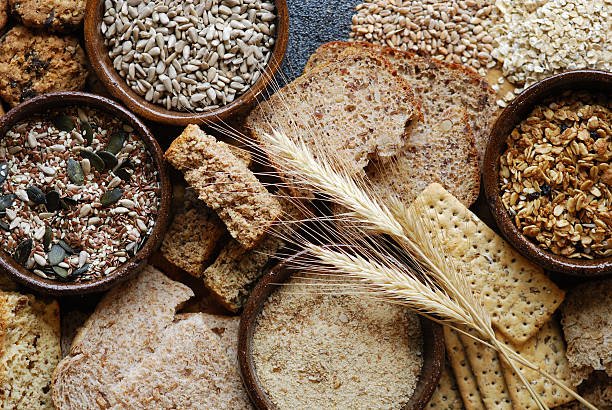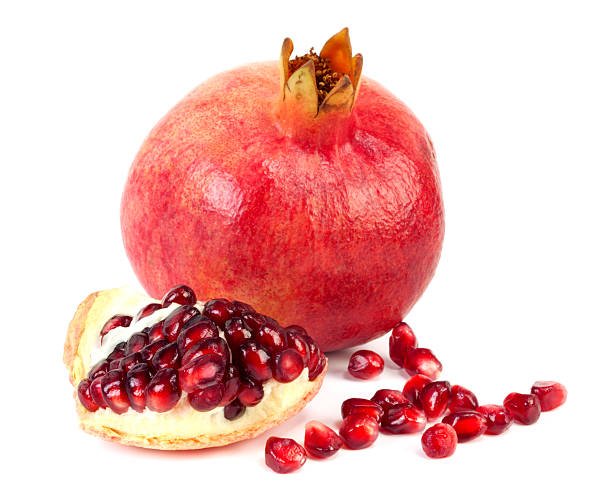
Do You Know the Dietary Taboos for Heart Disease? Avoid High-sugar, High-fat, and High-sodium Foods
According to the Mayo Clinic, restaurants often serve more calories than we need. In order to prevent heart disease from coming to your doorstep, dietary control is a very important step. As long as you make good dietary adjustments, you can help lower your body’s blood sugar, blood pressure, high cholesterol, and regulate insulin, thereby optimizing the operation of your cardiovascular system.
The following article lists unhealthy foods that should be avoided, as well as fruits and teas that are good for heart function. If you have relatives or friends with heart disease, you may wish to refer to this article for dietary habits.
It’s better to eat less refined starch
Whole grains are a good source of fiber and other nutrients, but it is different if it is refined starch, because during the processing of refined starch, its natural structure will be destroyed and many nutrients will be reduced, including dietary fiber, minerals, fatty acids and Phytochemicals, etc. In addition, in order to make the food more delicious, many flavoring ingredients are added, such as trans fat, sodium and sugar.
In addition, excessive calorie intake can easily be converted into fat in the body, causing blood lipids to rise. Therefore, Harvard Medical School in the United States recommends that people should try to reduce their intake of refined processed grains. Based on 30 grams per serving, the intake should not exceed 7 servings per week. The following is a list of processed foods that should be reduced:
- Refined starch
- bread
- Donut
- cookie
- muffin
- cake
- pie
- Noodle
- high fat snacks

Avoid using high-fat foods
To maintain a healthy heart, it is important to reduce saturated fat and trans fat. Before cooking meat, it is recommended to remove the fat or choose lean meat with less than 10% fat. However, it is not possible to consume no fat at all. It is recommended to replace high-fat with low-fat to avoid high-fat proteins such as whole meat. Fat milk, dairy products, animal offal, fat and snowflake meat (also known as frost meat), ribs, sausages, bacon, fried foods.
According to the information of the American Heart Association (hereinafter referred to as AHA), based on 2,000 calories a day, saturated fat should be controlled at 11 to 13 grams; trans fat is not recommended at all and requires special Note that if a product’s ingredients are labeled as partially hydrogenated, it means it contains trans fat. Here is a list of fats and oils that should be avoided:
- butter
- lard
- bacon fat
- gravy
- Creamer
- margarine
- butter
- Coco fat
- coconut oil
- palm oil
- cottonseed oil
- palm kernel oil
Replace high-sugar drinks with sugar-free tea
Salt is needed to enhance the flavor of food. Excessive intake may lead to the risk of high blood pressure and cardiovascular disease. Therefore, it is recommended that when choosing high-sodium foods such as canned foods and seasonings, you should choose low-sodium types or reduce your intake. The AHA recommends that adults should not consume more than 2,300 milligrams of sodium in a day, and in principle it is best to limit it to 1,500 milligrams.
However, not only salt, but also sugar is one of the main culprits in causing heart disease. For example, a 350 ml can of carbonated drink contains about 10 teaspoons of sugar. Compared with solid food, the human body is more sensitive to the heat brought by liquids, leading to an increased chance of obesity. Instead of drinking unhealthy carbonated drinks, it is better to make the following 5 natural foods into juice, eat them directly or make a cup of good tea, which can help improve heart health:
- Berries:
Can help lower blood pressure and increase good cholesterol. Take cranberries and cherries as examples, they optimize the health of the inner cell tissue; dark purple grapes contain the antioxidant resveratrol, which is beneficial to the health of the inner walls of blood vessels. - Pomegranate:
A recognized antioxidant fruit, its seeds can reduce atherosclerosis, increase nitrogen oxide, improve blood vessel clogging, and reduce the chance of heart disease. - Hawthorn:
Contains proanthocyanidins, which can inhibit Angiotensin Converting Enzyme (hereinafter referred to as ACE) and help improve cardiac oxygen delivery and myocardial function. However, if you are currently taking antihypertensive drugs, please avoid using them or discuss them with your doctor, because the use of hawthorn and antihypertensive drugs together may have a synergistic effect and cause danger. - Hibiscus:
Similar to the berry, it contains anthocyanins, citric acid, malic acid, polyphenols, bioflavonoids, and a hint of vitamin C. Tastes a little like cranberries, helps lower blood pressure and sodium, inhibits ACEs, and may help control cholesterol and triglycerides. - Rooibos:
Also known as South Africa’s national treasure tea, it is a caffeine-free, antioxidant-rich fermented tea that tastes similar to black tea. In addition to lowering blood pressure and inhibiting ACE, it can also improve the body’s antioxidant system, reduce bad cholesterol and triglycerides, and increase blood polyphenols and nutrients.













